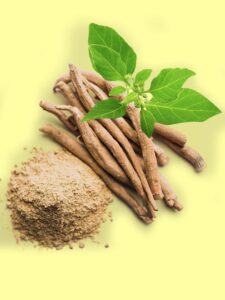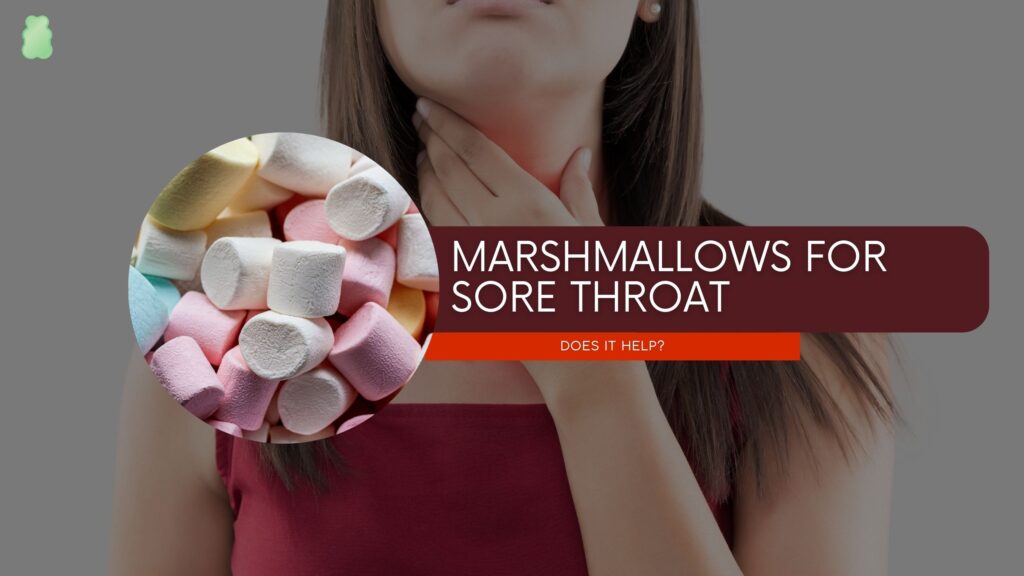Table of Contents
ToggleAre you looking for a natural way to help treat eczema? Have you heard about Ashwagandha and its potential benefits but not sure if it’s right for you, or how to use it? For years I have used this miraculous herb and have seen amazing results. In this article, I will share my personal experience with ashwagandha as a treatment for eczema and provide an easy how-to guide so you can give it a try yourself!
Here, I will cover the basics of ashwagandha, including what it is, where to find it, important precautions to keep in mind when using it as a remedy for eczema. We’ll also look at the science behind why ashwagandha works so well in fighting eczema flare-ups. So if you’ve been searching for more information about using Ashwagandha to treat your skin condition naturally, then let’s get started right away!
What is Ashwagandha and How Does it Work?

Eczema, also known as atopic dermatitis, is a chronic skin condition that causes redness, dryness, and itching. It can be incredibly frustrating to deal with, as flare-ups can occur seemingly out of nowhere. That’s where Ashwagandha comes in.
When it comes to eczema treatment, finding natural remedies that actually work can be like finding a needle in a haystack. But ashwagandha has been proven time and time again to offer relief for those struggling with this stubborn condition.
One of the key benefits of ashwagandha for eczema is its anti-inflammatory properties. The active compounds found in the herb help reduce inflammation and soothe irritated skin. This not only helps alleviate the itching associated with eczema but also aids in healing damaged skin.
Additionally, ashwagandha has immunomodulatory properties, meaning it helps regulate the immune system. In people with eczema, an overactive immune response can play a significant role in triggering flare-ups. By modulating the immune system’s activity, ashwagandha may help prevent these episodes from occurring or lessen their severity when they do happen.
Incorporating ashwagandha into your daily routine could make a world of difference for those dealing with eczema symptoms. Whether taken internally as a supplement or applied topically as an oil or cream, this powerful adaptogenic herb offers hope for individuals seeking natural relief from this troublesome condition.
We have covered an extensive guide on Ashwagandha which includes ashwagandha and zinc together. Further to better understand the herb and its various uses, we have covered topics like ashwagandha and lion’s mane which you might be interested in.
Also, check out our recent posts: ashwagandha and antidepressants
Where Can You Find Ashwagandha?
Ashwagandha, the miraculous herb, comes in a multitude of forms. You can find it powdered, encapsulated, brewed into teas, or even transformed into tinctures. The versatility of this ancient remedy means that you have the freedom to choose what works best for you and your lifestyle. Whether you prefer the convenience of capsules or enjoy the ritual of sipping on a warm cup of ashwagandha tea, there is a form out there that will suit your preferences.
When it comes to purchasing ashwagandha products, quality is key. Opting for high-quality organic options ensures that you are consuming the most potent and pure form of this incredible herb. Look for reputable brands that prioritize sustainability and ethical sourcing practices. These companies go above and beyond to ensure their products are free from harmful pesticides and additives.
Shopping for ashwagandha has never been easier with its wide availability both in health food stores and online retailers. You can browse through numerous websites from the comfort of your own home, comparing prices and reading customer reviews before making an informed decision. Don’t forget to check if they offer certified organic options as well.
So whether it’s an energizing powder for your morning smoothie or a calming tea before bed, adding ashwagandha to your daily routine is simpler than ever before thanks to its various accessible forms! Remember – always opt for top-notch quality when choosing your ashwagandha product so you can reap all of its remarkable benefits without any compromises!
You Might Like: https://realgoodgummies.com/how-to-cycle-ashwagandha
Precautions When Using Ashwagandha for Eczema

Ashwagandha can interact with certain medications, including those that are prescribed for thyroid disease or depression. Additionally, it can affect blood sugar levels and increase the risk of low blood pressure when taken with drugs that lower blood pressure. People taking anticoagulants should also avoid ashwagandha as it may worsen bleeding disorders. For these reasons, individuals should talk to their doctor before combining ashwagandha with any other medication.
If supplementing with ashwagandha, start low and go slow when first starting out to find the right dose for you. Side effects associated with ashwagandha are usually mild and include gastrointestinal issues like nausea or diarrhea if taken in too high a dose. Other rare side effects reported from higher doses include drowsiness and rashes on skin exposed to sunlight after taking the herb. It’s important to stop using this herb immediately if any serious side effects occur such as rapid heart rate or difficulty breathing.
You Might Like: https://realgoodgummies.com/ashwagandha-and-maca-root
How to Use Ashwagandha for Eczema Relief
Ingesting ashwagandha is a convenient way to incorporate it into your eczema treatment routine. Whether you choose to take it as a supplement or brew it as a tea, the benefits are aplenty. The powerful properties of ashwagandha work from within, boosting your immune system and reducing inflammation that contributes to the flare-ups of eczema. As you sip on this soothing elixir, imagine the herb’s gentle touch calming your irritated skin from deep within.
For those who prefer an external application, creating a topical paste with ashwagandha can provide targeted relief for specific areas affected by eczema. Picture yourself standing in front of a small mortar and pestle, carefully grinding powdered ashwagandha until it forms a fine dust. Mixing this magical ingredient with water or carrier oils like coconut oil creates a smooth paste that glides effortlessly onto your skin. As you gently massage the concoction onto those troublesome patches of redness and itchiness, feel its cooling effect seeping through every pore and soothing away discomfort.
Remember, consistency is crucial when utilizing ashwagandha in your eczema treatment regimen. Stick to the recommended dosage whether you’re ingesting it orally or applying it topically to ensure optimal results without any adverse effects. By incorporating this ancient Ayurvedic herb into your daily routine with diligence and care, you may find some much-needed comfort in managing the symptoms of eczema gracefully.
You Might Like: https://realgoodgummies.com/ashwagandha-withdrawal-things-you-must-know
Scientific Evidence Supporting Ashwagandha’s Effectiveness
Ashwagandha
by u/WilliamsEmp in Psoriasis
You Might Like: https://realgoodgummies.com/ashwagandha-gummies-for-sex
Other Benefits of Ashwagandha
Ashwagandha, a powerful herb with ancient roots in Ayurvedic medicine, has gained attention for its wide range of health benefits. One notable advantage is its ability to reduce stress levels. In today’s fast-paced world, stress can wreak havoc on our bodies and minds. Ashwagandha acts as an adaptogen, helping the body cope with stress by reducing cortisol levels and promoting relaxation. By incorporating this herb into your daily routine, you may experience a sense of calm and improved mental well-being.
Another area where Ashwagandha shines is sleep quality enhancement. Adequate sleep is crucial for our overall health and functioning. Ashwagandha has been shown to promote deep sleep while also increasing the duration of restorative REM sleep cycles. This not only helps you wake up feeling refreshed but also supports optimal cognitive function throughout the day.
Furthermore, ashwagandha offers immune-boosting properties that can help fortify your body’s defense against illnesses. Its active compounds have been found to stimulate immune cells, improving their ability to fight off pathogens and viruses.
Additionally, this versatile herb has been linked to enhanced cognitive function. It aids in memory retention, focus, and concentration by reducing oxidative stress in the brain.
Lastly, ashwagandha may provide a natural energy boost without the jitters or crashes associated with caffeine or other stimulants. By supporting adrenal glands’ healthy function and optimizing hormone balance within the body, it helps combat fatigue and increases vitality.
Incorporating ashwagandha into your daily routine offers not only relief from eczema symptoms but also an array of overall well-being benefits such as reduced stress levels, improved sleep quality, boosted immune system function,, enhanced cognitive abilities, and increased energy levels – all contributing to living a healthier life!
Conclusion
Ashwagandha, a powerful herb with a rich history in Ayurvedic medicine, has gained attention for its potential benefits in managing eczema. The plant’s anti-inflammatory properties can help soothe the redness and inflammation associated with this skin condition. By reducing the production of inflammatory chemicals in the body, ashwagandha may bring much-needed relief to those suffering from frequent flare-ups.
Additionally, ashwagandha has been found to modulate immune responses. Eczema is often characterized by an overactive immune system that mistakenly attacks healthy skin cells. By regulating immune function, ashwagandha may help restore balance and prevent excessive inflammation.
It’s important to note that while ashwagandha shows promise as a natural remedy for eczema, it should not be used without consulting your healthcare provider first. Every individual is unique, and what works for one person may not work for another. Moreover, since herbal supplements can interact with medications or have side effects of their own, it’s crucial to seek professional advice before incorporating them into your treatment plan.
In conclusion, if you are someone who suffers from eczema and wants to explore alternative remedies beyond conventional treatments, ashwagandha could potentially provide significant relief. However, always prioritize safety by discussing any new additions to your regimen with your healthcare provider first. With proper precautions and guidance from professionals, you might find that ashwagandha becomes an invaluable tool on your journey towards healthier skin and improved quality of life.
FAQ
1. What are the benefits of using Ashwagandha for treating eczema?
Ashwagandha has been known to possess anti-inflammatory properties, which can help reduce inflammation and itching associated with eczema. Additionally, it may support stress management, as stress is a common trigger for eczema flare-ups.
2. How does Ashwagandha work in relieving eczema symptoms?
Ashwagandha works by modulating the immune system and reducing inflammation in the body. This can help alleviate symptoms such as redness, swelling, and itching commonly experienced with eczema.
3. Is it safe to use Ashwagandha for treating eczema?
When used responsibly and in appropriate doses, Ashwagandha is generally considered safe for most individuals. However, it’s important to consult with a healthcare professional before incorporating any new herbal supplement into your regimen to ensure compatibility with existing conditions or medications.
4. How should I take Ashwagandha for managing my eczema symptoms?
The best way to take Ashwagandha is usually in capsule or powder form as per recommended dosage instructions provided by the manufacturer or a qualified healthcare practitioner. It’s also advisable to follow an overall holistic approach that includes maintaining proper skincare routines and managing underlying triggers alongside supplementation.
5. Can pregnant women or breastfeeding mothers safely use Ashwagandha for treating their eczema?
It’s crucial that pregnant women or breastfeeding mothers consult their healthcare provider before using any herbal supplements like ashwagandha due to potential effects on hormonal balance and fetal development/nursing infants’ health.
Dr. Susan Francis is a passionate medical professional with over 4.5 years of experience in the field. She received her medical degree from the University of Michigan and completed her residency at the Mayo Clinic.
In addition to her clinical work, Dr. Francis has a strong interest in medical writing and editing. She has edited numerous articles for medical journals and is a regular contributor to several healthcare publications.
Dr. Francis is committed to promoting accurate and accessible medical information to the public. In her free time, she enjoys staying up to date on the latest medical research and volunteering at local healthcare clinics.
- October 3, 2023
- October 3, 2023









